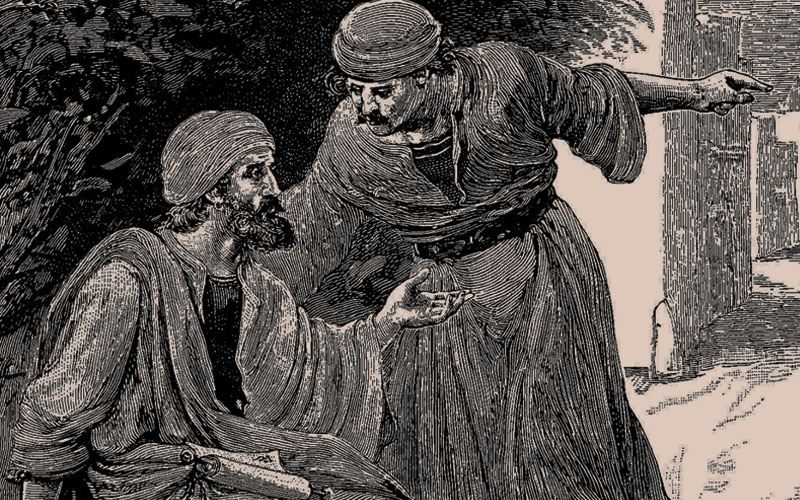John 1:46 Nathanael said to him, “Can anything good come out of Nazareth?” Philip said to him, “Come and see.”
Nazareth, in the region of Galilee, was far from Jerusalem, the center and capital of Israel. As a remote place, its insignificance was perhaps its most defining trait. But when Nathanael asked if anything “good” could come from there, it was a moral question. Like most nations, regional pride emphasizes the local good and the non-local bad, using whatever measures are available. We certainly have no record of conspicuous Galilean evil – the words and acts of Mary the mother of Jesus show there was certainly deep devotion to God in practice.
Philip’s reply is short but the best one to be offered to scoffers and skeptics. It echoes the Psalmist’s invitation:
Psalm 34:8 Taste and see that the LORD is good
as indeed Nathanael would. Jesus immediately displayed miraculous knowledge of Nathanael’s life before they met, at which Nathanael named Jesus as Messiah (see verse 49).
It is not up to any believer to prove who Jesus is; because the move of the Holy Spirit on anyone’s life is God-breathed and spiritually discerned. Humanity craves reasoned understanding and banks on its scientific proofs, which are hit-or-miss at best. Reasoning would have dismissed investigating this Jesus because he was, after all, from Nazareth. And, concerning the person of Jesus Christ, one can only be invited with a “Come and see”. The rest is up to that person to both come and see.

In Nathanael’s case, coming to Jesus involved some travel. Jesus did not come to him. For others, Jesus would indeed show up on scene and on point. But truly coming to Jesus requires “being there” – actually showing up with operational senses and a willingness to perceive what Jesus will say and do.
Seeing is not only a use of one’s eyes, but of one’s spirit. When prayer or worship receives a its replies, whatever the response, identifying that there really is a loving God who hears and answers is vital to spiritual perception. Relatively speaking, Nathanael saw the physical Jesus Christ and was immediately shown a miraculous sign. Later, and unto this very day, the miraculous still occurs, but there is almost always no audible voice. Many will explain God’s interactions with people as coincidence or wishful thinking. At some frequency those arguments become too thin to carry weight, and people who’ve refused to “come and see” don’t want others to do that either.
To be sure, the erosion of faith invariably has ever-decreasing “come and see” activity and perception. The invitation, then, is ongoing and vital. Something good – VERY good- has come from Nazareth.










